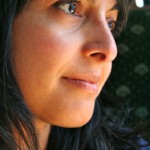Rapper Dean Rodney has a soulful strut, a powerful pair of lungs and a learning disability. Dark shades, smooth black suit, definitely supercool. I’ll be at the Royal Festival Hall on London’s South Bank tonight to see his band, the Fish Police, a fired-up trio that fuses hip hop with funk and punk and lists Japanese anime and fast food among its eclectic inspirations.
Fish Police met when musician and lyricist Charles Stuart trained two learning disabled youngsters, Dean (now Fish Police singer, rapper, bass and lyrics) and Matthew Howe (the trio’s equally cool rhythm guitarist) as part of a youth band based at disability arts organisation Heart n Soul.
Next month the Fish Police will be releasing their debut album, Cheeseburger Man (Herbie Hancock’s Watermelon Man for the McDonald’s generation?), performing at the Lincoln Center in New York and at Liverpool’s DaDa Fest, the UK’s largest disability and deaf arts festival. Their music is a fresh and freestyling antidote to the conveyor-belt fodder jostling for space in today’s uninspiringly plastic charts.
I came across Heart n Soul over a year ago when I heard about one of its artists, soul singer Lizzie Emeh. Lizzie broke new ground by becoming what’s thought to be the first learning disabled solo artist to release an album to the general public. Loud and Proud was three years in the making and produced with the support of Heart n Soul, 33 years after Lizzie’s parents were told never she would never walk or talk following complications at birth.
In 1984, musician Mark Williams (now Heart n Soul’s director) wanted to explore how music and art could make a difference in communities. He began running creative sessions in east London for a group of people with learning disabilities who went to the local day centre, The Mulberry Centre. Eventually The Mulberry Crew, as they came to be known, moved into a bigger arts complex in Deptford and became Heart n Soul, with the aim of working towards professional productions – not simply, as was then the norm, undergoing art therapy.
The charity now runs a hugely popular club night for people with learning disabilities, the Beautiful Octopus club, and has a consultancy arm to advise other organisations on setting up cultural events for those with special needs. It also employs people with a learning disability and markets arts events to the learning disabled.
The Fish Police, Lizzie Emeh and their other talented peers are also regulars at Heart n Soul’s summer arts festival which is based on the Beautiful Octopus club night. The event isn’t on most people’s summer festival radars, but it should be. Along with live music, the event a couple of months ago boasted a comedy stage, improv and open mic sessions, face painting, a massage tent, a chill out zone designed by the Brockley Jack Studio Theatre, cinema room, dance floor and VJs and DJs. Performance art is notoriously hard to pull off, but the trio of artists performing as Live Heart did so with panache, demonstrating why the Tate Modern recently invited them to perform. K:DNA showed off their inspired blend of funk, reggae and classical music while the Riki Jodelko Band were an amazingly tight soul-pop outfit, astounding when they covered Bill Withers’ Lovely Day and Bob Marley’s Could You Be Loved.
Best of all, I loved the inclusive nature of the event. The Beautiful Octopus invites everyone to have a good time, regardless of ability or special need. When you enter the world of Heart n Soul’s festivals or club nights, when you immerse yourself in the melee of fancy dress, fairy wings and face paints, when someone in a clown outfit tumbles head over heels into a perfect cartwheel right in front of you, whether they have a learning disability or not is irrelevant – what’s important is that they’re having fun. And it’s infectious.
Frankly, in this environment (compared to other events I’ve blogged about) it’s impossible not to roll with the good times. I’m working on my cartwheel for next summer…for tonight, the shades and soulful strut will have to do.
* The Beautiful Octopus Club is at the Royal Festival Hall, Southbank Centre, tonight (Friday 8 Oct) 7pm-12am. Entry is free.

